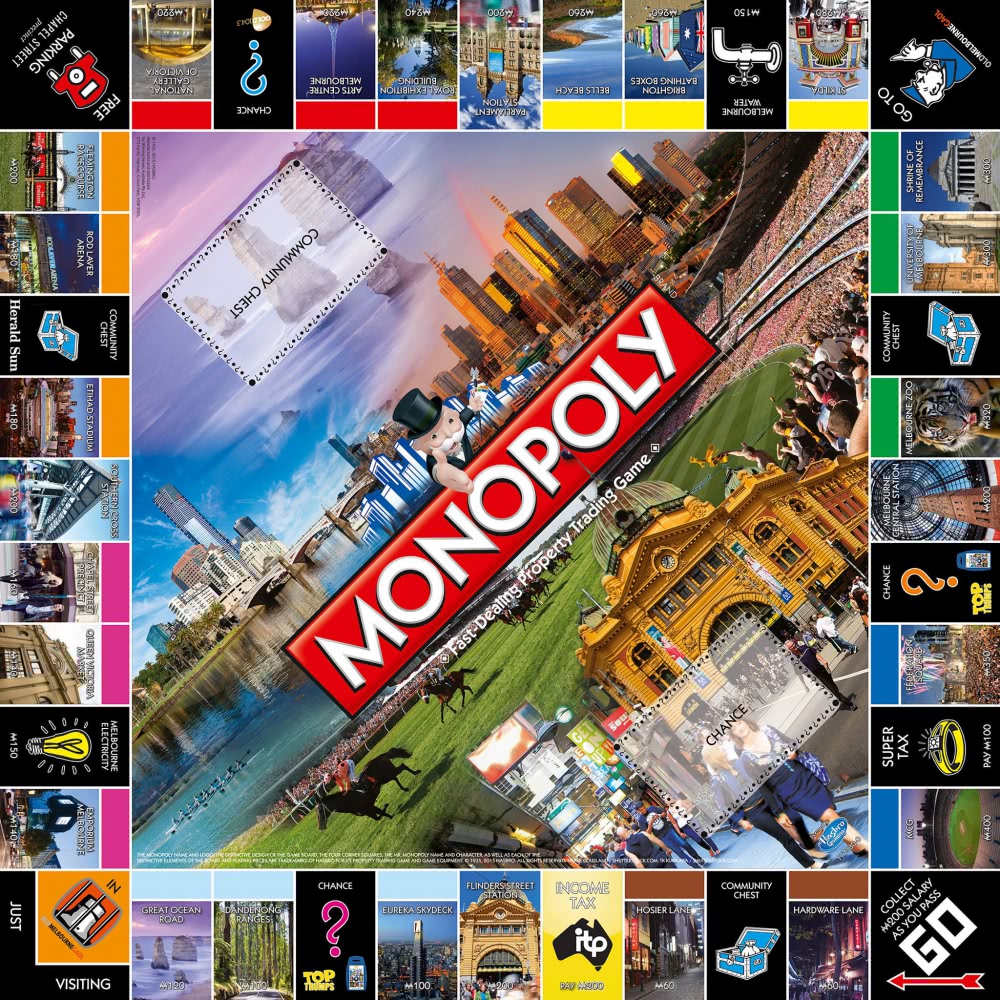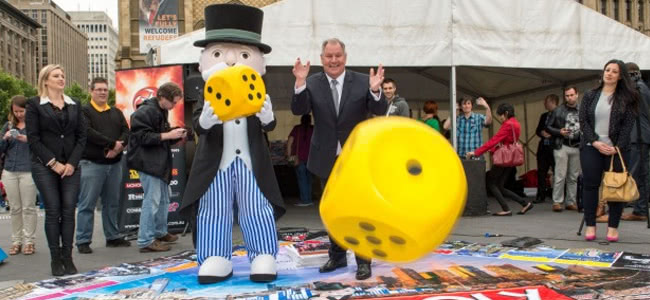This week saw the release of the first-ever official Melbourne Monopoly game, which puts a distinctly Melburnian twist on the classic board game we all know and love. Of course, not everybody’s happy with it, particularly Melbourne natives.
As The Age reports, the game’s classic player tokens have been replaced with a takeaway coffee cup, a football, Phar Lap, a spray paint can, tram, and a book, because as we all know, when you think Melbourne, you think of a Kiwi horse and books.
The game’s iconic destinations, meanwhile, such as Old Kent Road and Mayfair, have been replaced with famous Melbourne tourist spots such as the Queen Victoria Market, Shrine of Remembrance, St Kilda Beach, and for some reason, Bells Beach, located 100km south-west of Melbourne.
Naturally, the board has drawn a fair share of criticism, with many wondering where the “real” Melbourne is and expressing dissatisfaction with the corporate plugging featured on the board (you can be charged tax by ITP).
A quick straw poll conducted by Fairfax gave the board game a thumbs down, saying it was too touristy, with no streets and far too much business placement, as well as including far too many locations that aren’t actually in Melbourne.
What isn’t included, however, is seemingly any live music venues. Sure, there’s spots like Rod Laver Arena, which does regularly host live music from some pretty massive acts, but what about a Festival Hall or a Forum or a Corner Hotel?
Maybe someone should’ve reminded the Monopoly folks that Melbourne is one of the world’s leading music cities. And no, we don’t mean we have a lot of great venues, we are officially one of the world’s leading music cities according to the IFPI and Music Canada.

Melbourne Monopoly Board via Imgur
As we reported back in June, Melbourne, along with the likes of London, Montreal, New York, and Austin, Melbourne is cited as one of the world’s foremost hubs for music, particularly when it comes to live performance, and a shining example for the rest of the globe.
“In Melbourne, Australia, a 2012 census found that live music alone generated more than A$1bn in spending at small venues, concerts and festivals, supported 116,000 annual full-time equivalent jobs, and produced significant spin-off benefits to restaurants, hotels, transportation companies and other providers,” the IFPI study read.
Music is inarguably an integral part of Melbourne’s cultural makeup, which begs the question why it was left off the official Melbourne Monopoly board? Guess they needed more room to fit in a plug for an accounting firm?




































